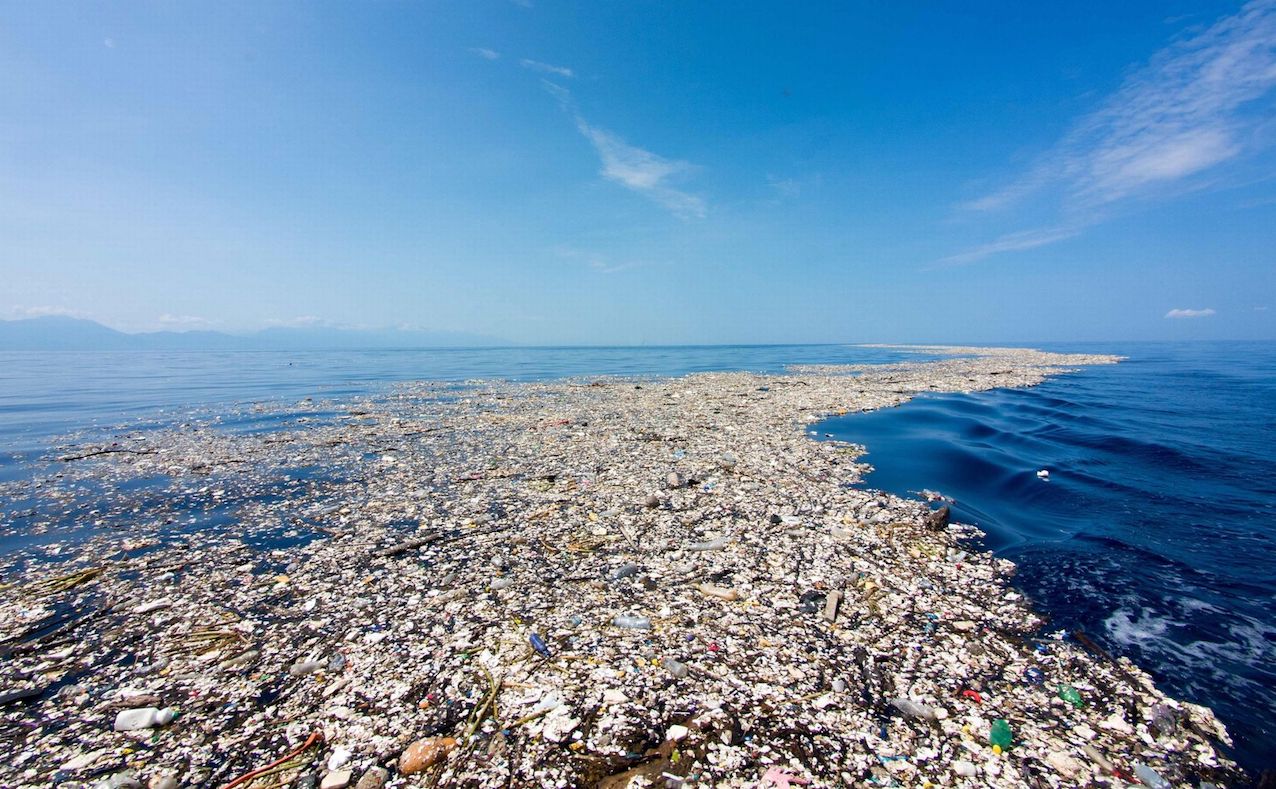The UK government’s Future of the Sea Foresight report published today by the Office for Science predicts that plastic in the seas and oceans will treble within the next ten years. “Plastic does not decompose, instead breaking down into ever smaller pieces. The full effects are not understood, but there is growing evidence of plastic harming sea creatures and restricting their movement, as well as polluting beaches,” the report says. Suggested solutions, according to the scientists who compiled the report include preventing plastics from entering the sea, the introduction of new biodegradable plastics, and public awareness campaigns about marine pollution and protection – addressing an overwhelming “out of sight, out of mind attitude”.
Other environmental concerns of the report include sea temperature rise, predicted to increase by 1.2 to 3.2°C by the end of the century; a concomitant sea level rise increasing coastal flooding; the growing problem of chemicals, known as persistent organic pollutants (POPs) and the threats of all of this to marine biodiversity: The decline and, in some cases, extinction of marine organisms will damage the long-term health of the oceans and its services, such as carbon sequestration and food provision,” says the report.
Caroline Power interviewed by BBC about her filming of a five mile wide tide of plastic in the Caribbean at Honduras: HERE
![]() Incidentally if you are interested in the difference between numbers like a million and a billion, etc, then think of them in terms of seconds – a million is 11½ days; a billion is 32 years… a trillion? Hazard a guess… (it’s a bit more than 31,709 years!)
Incidentally if you are interested in the difference between numbers like a million and a billion, etc, then think of them in terms of seconds – a million is 11½ days; a billion is 32 years… a trillion? Hazard a guess… (it’s a bit more than 31,709 years!)


